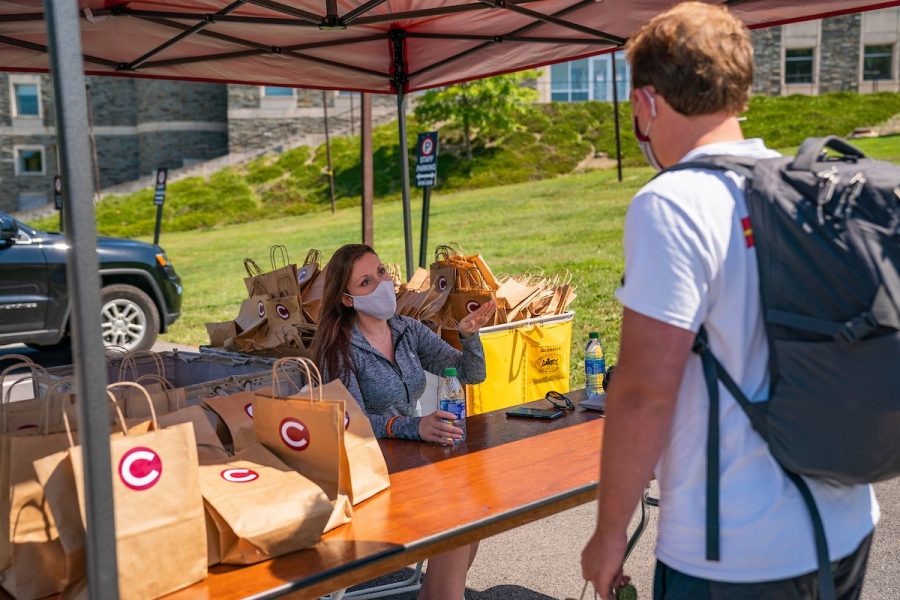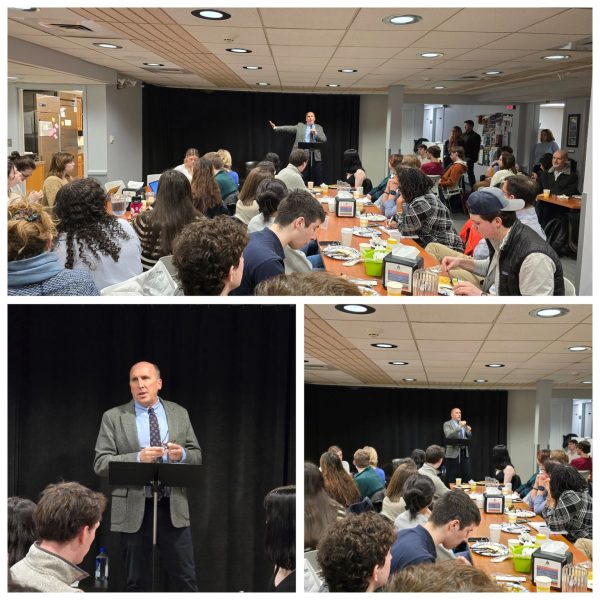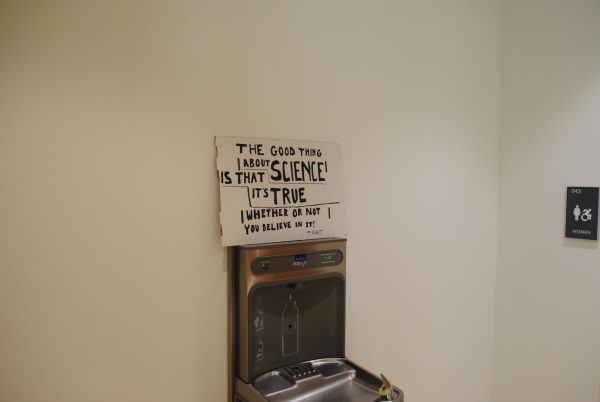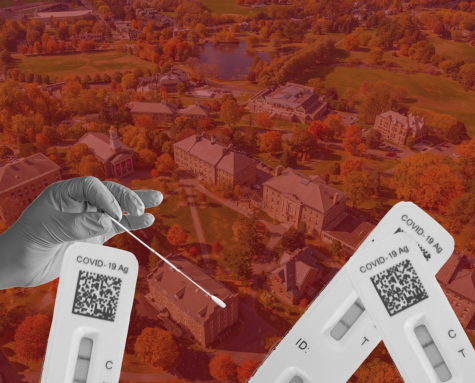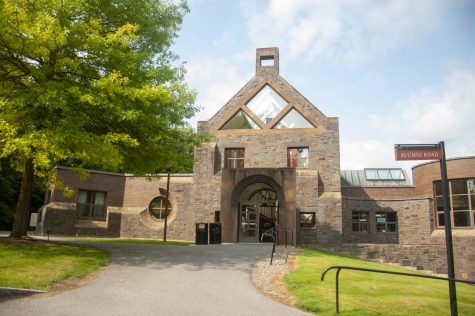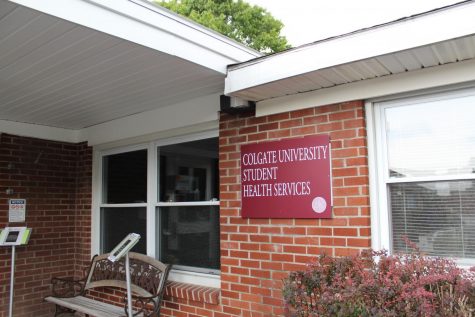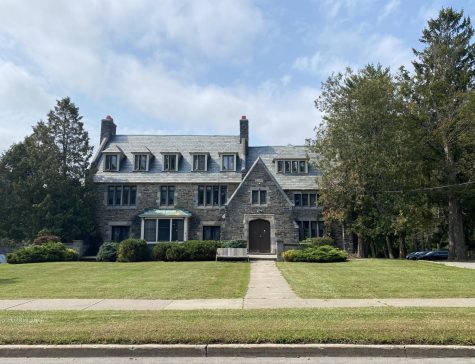Colgate Welcomes the Class of 2024 Through Fully Virtual Orientation
Mark DiOrio / Colgate University
A first-year student checks in after arriving to campus. All students picked up a welcome bag including two Colgate masks, a thermometer and hand sanitizer before beginning the mandatory quarantine until Sept. 8.
Colgate welcomed 802 students from an applicant pool of 8,582 to the class of 2024, a decrease from last year’s pool of nearly 10,000. However, the first-year class that arrived on campus last week or began their studies remotely marks an uptick in diversity of the class, with multicultural students making up 33 percent of the class of 2024 — an increase from 22 percent of the class of 2023. The percentage of international students has remained the same from last year’s class at roughly 10 percent.
For domestic students, over half of the class of 2024 comes from the East Coast, as 24 percent from New York, 21 percent from the Mid-Atlantic, 19 percent from New England and 5 percent from the Southeast. The remaining percentage of students will be arriving at Colgate from the West, Midwest, and Southwest, respectively 10 percent, 8 percent and 3 percent.
This year’s orientation was held entirely online and called for an unprecedented adaptation from the Orientation Link staff, who planned this year’s virtual orientation. Some of the biggest challenges that confronted the Link staff were making sure that new students would still be able to form a personal connection with their peers in spite of quarantine and the virtual training, where the staff gets to know each other to work efficiently as a team. Although Links usually move onto campus a week before first years to start training, this year’s training was condensed into three days.
“This [virtual training] has been really helpful with understanding how new students will connect with each other in this new environment. We have each day of orientation packed with virtual meetings and activities so students hopefully won’t feel so isolated once in quarantine,” senior Link Abby Blair said.
Due to the nature of online orientation, students had more downtime than past year’s orientation due to quarantine. However, to mitigate this feeling of isolation, Link staff facilitated events including virtual escape rooms and extended orientation events for first years to learn more about how they can stay involved on campus.
“We really do not want students to feel as though the relationships they will be able to make are being stifled by a virtual environment,” junior Link John Morgan said.
Nighttime programming for orientation also changed this year, as activities like the carnival on the quad simply aren’t practical online, according to senior Link Katie Roell. However, the general info conversations that discuss alcohol safety and student resources will still be done during the night programs.
“I think that a lot of my fellow Links and I are expecting that the facilitation of conversation will be different,” Roell said prior to orientation. “Subtle shifts in body languages are so helpful for effective communication, but often lost in Zoom.”
Not only was this virtual orientation challenging for Link staff to express themselves as easily as they could in person, but it also proved challenging for new students to feel the breadth of the Colgate community.
“In my opinion, the biggest difference between this and past orientations will be that the community will feel a bit smaller at first. We have really honed in on connecting new students with people in their commons and Links, but we will not be able to do the events that invite the whole community such as the fair on the academic quad and all of the Link staff greeting the new students and their families. We hope that new students can find companionship and comfort in these smaller communities until we can hopefully escape our rooms and meet people [masked] face to [masked] face,” Blair said.


